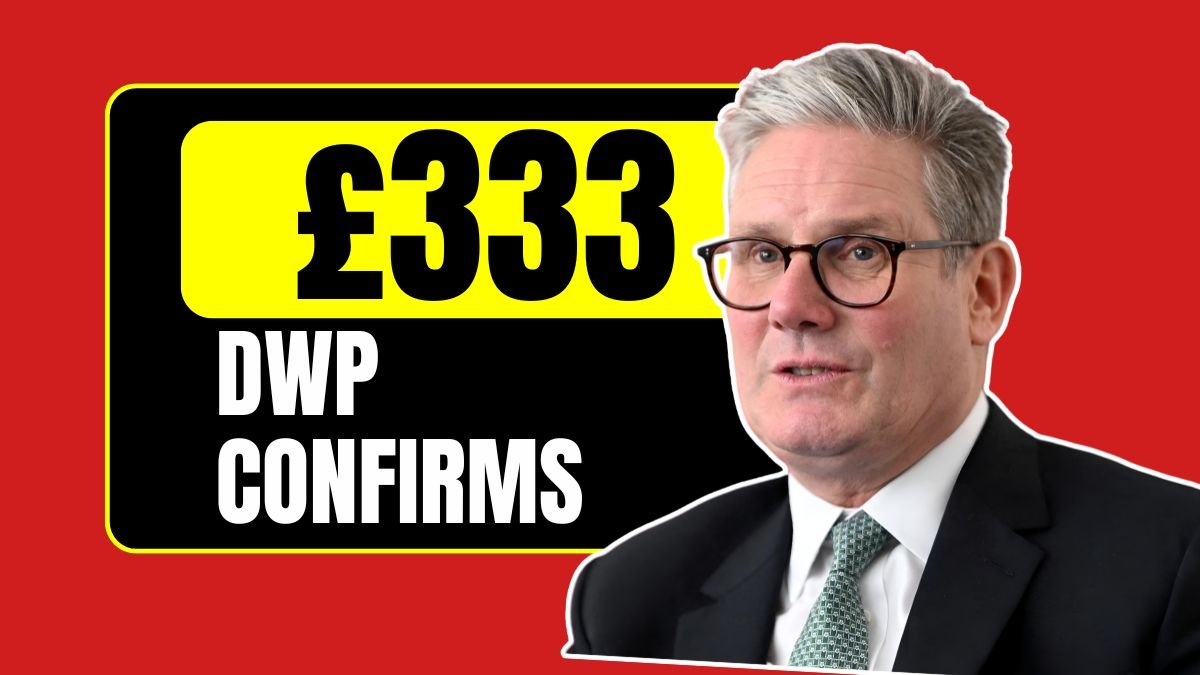Starting from Monday, July 7, 2025, a major and very welcome update has been made to Career’s Allowance by the UK Government’s Department for Work and Pensions (DWP). This new change is great news for thousands of unpaid carers across the country. In fact, it’s being described as the biggest improvement to the Carer’s Allowance system since it first began back in 1976—almost 50 years ago.
So, what exactly is changing? And how does it help people who look after their loved ones? Let’s break it all down in a simple, easy-to-understand way.
What Is Carer’s Allowance?
Carer’s Allowance is a type of financial support given to people who spend a significant amount of time looking after someone who is ill, elderly, or disabled.
If you are spending at least 35 hours a week caring for someone who needs help due to a physical or mental health condition, then you might qualify for this benefit.
You don’t need to be related to the person you’re looking after. You also don’t have to live with them. For example, you could be a friend, neighbor, or volunteer who spends time every day helping someone get dressed, eat, take their medicine, go to appointments, or just stay safe and comfortable.
As of April 2025, the weekly Carer’s Allowance payment is £83.30, which adds up to over £4,300 a year. It might not seem like a huge amount, but for many unpaid carers—especially those who also have low-paid jobs or part-time work—this money can make a real difference in managing daily expenses.
What Has Changed from July 7, 2025?

Before this new rule came into effect, people who received Carer’s Allowance were only allowed to earn up to £151 a week from paid work. If they earned even £1 more than that, they would lose their Carer’s Allowance entirely for that week.
This was a big problem. Many carers work part-time or take on a few shifts here and there to make ends meet. But because of this strict income limit, they had to be extremely careful not to accidentally go over the threshold.
New Earnings Limit: £196 Per Week
Now, from April 7, 2025, the earnings limit has gone up to £196 per week. That’s an increase of £45 every week, or about £180 more per month that carers can earn without losing their benefit.
To put it another way: carers can now earn up to £10,000 or more per year from work and still keep receiving Carer’s Allowance.
This increase is based on the idea of someone working around 16 hours a week at the National Living Wage, which was also increased recently. The government wanted the benefit system to reflect current working conditions and wages.
Why This Change Matters for Carers
This may sound like a small technical change, but it’s a big deal for unpaid carers—especially those in low-income households, single parents, and older people who also work part-time.
Let’s take an example:
Example 1:
Sara, a 45-year-old mum from Leeds, looks after her adult son who has autism. She also works part-time at a local supermarket. Before the new rule, if she worked an extra shift and earned £152 that week, she would lose her entire Carer’s Allowance payment of £81.90 for that week. That’s a net loss for just £1 extra in wages.
Now, under the new rule, she can work more hours and earn up to £196 without losing her allowance. She has more flexibility to support her family without worrying about being penalized for doing a little more work.
Example 2:
John, a 62-year-old retired mechanic, cares for his wife who has Parkinson’s disease. He does odd jobs in the community to earn a bit of extra money. Previously, he had to constantly monitor how much he earned to avoid going over the weekly cap. A simple mistake could have meant months of repayments to the DWP.
With the new limit, people like John have more breathing room. They won’t be punished for earning a bit more or making honest mistakes in their income reporting.
Avoiding Costly Mistakes and Repayments
One of the biggest criticisms of the old system was how strict and unforgiving it was. The rules were described as a “cliff edge”—meaning once you stepped over the line, even slightly, you were out.
Many carers who made minor errors in reporting their income were later told they had been overpaid, and they had to pay back thousands of pounds—sometimes for mistakes made months or years earlier.
In some heartbreaking cases, carers were taken to court or had debt collection agencies sent after them, even though their only mistake was working a little extra or misunderstanding how to report their earnings.
The new earnings threshold helps reduce the risk of these costly situations. Carers now have a buffer zone, and less fear of losing benefits over small, accidental missteps.
More People Now Qualify
Thanks to this change, it’s estimated that around 60,000 more people will now become eligible for Carer’s Allowance.
These are people who may have been previously excluded because their income was just above the old threshold. Now, they can claim financial support for the important work they are already doing every day.
Other Benefits Going Up Too

Carer’s Allowance isn’t the only benefit that’s increasing this year. The UK government has also raised several other welfare payments starting July 2025, based on inflation.
In September 2024, the inflation rate was recorded at 1.7%, and benefits were adjusted accordingly.
Here’s what else is increasing:
- Universal Credit: Payments are going up for many households.
- Personal Independence Payment (PIP): Slight increase based on cost of living.
- Carer’s Allowance: From £81.90 to £83.30 per week.
- State Pension: Increased by 4.1%, based on the triple lock system (whichever is highest among inflation, wage growth, or 2.5%).
These increases are part of the government’s effort to help families deal with rising prices and living costs.
Concerns About PIP Reforms
While the change to Carer’s Allowance is being celebrated, there are also some serious concerns—especially about upcoming changes to Personal Independence Payment (PIP).
Why does PIP matter?
Because Carer’s Allowance is often tied to the person you care for receiving PIP or another qualifying disability benefit. If the person you care for loses PIP, then you could lose your Carer’s Allowance, even if your caring role hasn’t changed.
In the Spring Statement 2025, the government announced potential reforms to PIP, which some fear might tighten eligibility or change how support is assessed.
According to Carers UK, a leading charity, as many as 150,000 carers could be affected if PIP eligibility rules are changed. That could cancel out the benefits of the new earnings threshold.
What Carers UK Is Saying
Helen Walker, the Chief Executive of Carers UK, said:
“We welcome the higher earnings limit—it will help many carers. But we’re concerned that changes to PIP could cancel out these gains for thousands.”
She also called for a full review of Carer’s Allowance, including the rules on who qualifies, how much is paid, and how the system can better support the real needs of carers today.
Carers UK and other organisations are pushing the government to make the system fairer, more flexible, and more in tune with modern life.
Final Thoughts:
The new earnings limit for Carer’s Allowance is a huge relief for many unpaid carers across the UK. It gives them a bit more freedom, flexibility, and financial breathing room. It allows people to take on extra hours, avoid penalties, and manage their household budgets with a little more ease.
But while this is a positive step, there’s still a long way to go.
Carers do vital work—they support loved ones, save the NHS and social care system billions of pounds, and often put their own careers and well-being on hold. Yet many still live in poverty, face burnout, and feel invisible to the system.
As the population ages and more people need care, it’s important that the benefits system continues to evolve, offering proper support to those who provide unpaid care.
If you are a career or know someone who is, this is a good time to check your eligibility and see if you can now qualify under the new rules. You can visit the DWP website or contact a local advice center for help.
FAQs
1. What is the new £333 Carer’s Allowance confirmed by the DWP?
The Department for Work and Pensions (DWP) has confirmed that starting July 2025, eligible carers will receive a monthly payment of £333 as financial support for providing unpaid care to someone with a disability or serious health condition.
2. Is Carer’s Allowance taxable?
Yes, Carer’s Allowance is considered taxable income, but you’ll only pay tax if your total income goes over your personal allowance threshold.
3. Do I need to live with the person I care for?
No, living with the care recipient is not required, as long as you meet the 35-hour weekly care requirement and the person receives an eligible benefit.
4. How can I apply for Carer’s Allowance in 2025?
You can apply online via the official GOV.UK Carer’s Allowance page, by post, or with the help of Citizens Advice or local welfare services.
5. Will the Carer’s Allowance affect my other benefits?
Yes, it may impact other benefits such as Universal Credit or Income Support. However, receiving Carer’s Allowance may also increase entitlement to Carer Premiums in other means-tested benefits.


